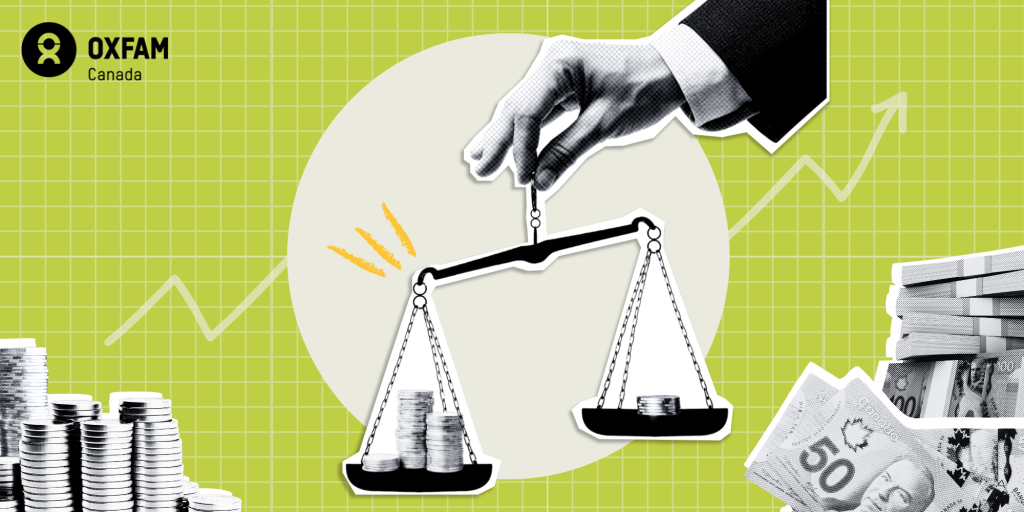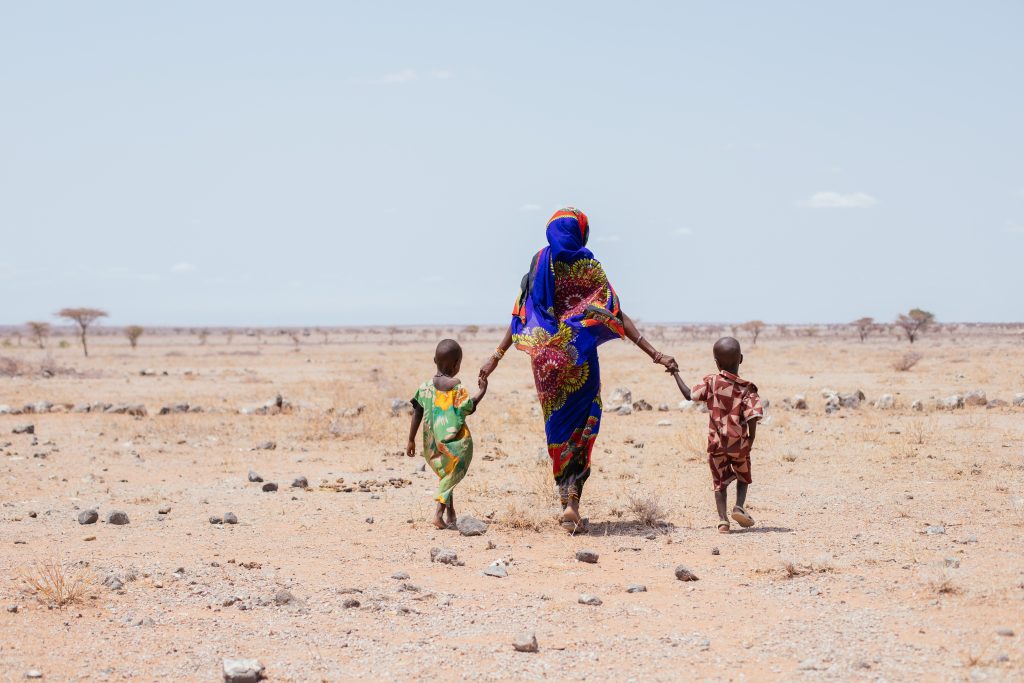What’s on the Table at the COP29 Climate Summit?
Every year 189 million people have their lives upended by extreme weather events made worse by climate change. The human toll of climate impacts is massive, and growing greater by the year. The amount of money needed for UN humanitarian appeals involving extreme weather events like floods or drought is now eight times higher than 20 years ago.
However, our current systems of life-saving humanitarian assistance, international aid and private insurance were not designed for our changing climate. It’s like we’re preparing our usual family dinner on Thanksgiving but eight times more people will be coming over. We’re setting out the same number of chairs, cooking the same amount of food and laying out the same number of plates as every year. But the need is so much greater than before.
Demand climate justice today!
Send a letter to make the biggest polluters pay!
Photo: Emmanuel Museruka/Oxfam
Climate finance will be topping the agenda when 193 governments gather this November at the COP29 climate change conference. Negotiations will center around setting what’s being called a “New Collective Quantified Goal,” or NCQG, for climate finance under the Paris Agreement. A new global deal on climate finance is crucial in slowing the pace of climate change (mitigation), adapting to the new climatic conditions (adaptation) and rebuilding communities and infrastructure damaged and destroyed by climate impacts (loss and damage).
Developing this new global goal for climate finance should put the needs of the most climate-vulnerable people at the heart of climate negotiations. Funding for loss and damage is urgently needed in low—and middle-income countries hardest hit by the hurricanes, typhoons, floods, and droughts of our changing climate. Massive flooding in Pakistan in 2022 and in Bangladesh this year clearly show how those who have contributed the least to global carbon emissions are facing some of the harshest consequences with little support.
Every fraction of a degree of further warming means more climate impacts, with losses from climate change in developing countries estimated to be between $290 billion and $580 billion by 2030.These estimates do not include non-economic losses and damages, such as psychological impacts and biodiversity loss, which are profound but cannot be translated fully into monetary terms, meaning the true cost is far higher than what is accounted for.
Fifteen years ago, rich donor countries – including Canada — committed to provide US $100 billion annually in financing for climate action by 2020, a promise they failed to meet. Two years later, in 2022, they claimed they had met the target but Oxfam analysis reveals significant over-reporting by donors.
So, how will we pay for climate solutions in a time of economic uncertainty?
Rich industrialized nations have burned through a great deal of humanity’s carbon budget. Our wealth was generated by carbon-fuelled economies that extracted vast natural (and human) resources from the global majority countries. Wealthy corporations and their billionaire owners have grown rich from the over-exploitation of the world’s resources.
Making rich polluters pay for climate solutions is the most important untapped mechanism for climate finance. Oxfam and other climate justice organizations are advocating for governments to make the wealthy pay their fair share through excess profits taxes on big corporations and a wealth tax on the super-rich in order to target extreme wealth in particular. Billionaires are responsible for a million times more in greenhouse gas emissions than the average person, due to their lavish lifestyles and investments in dirty industries. It’s time for the super-rich and large corporations to be held to account.
We have the financial resources to fight the climate crisis today once we redirect them from the pockets of billionaires and oil company shareholders. It’s time for them to pay up.
What’s at stake at the COP29 climate summit is whether governments will hold accountable those who created the climate crisis and profited massively from the burning of fossil fuels. The global majority who live in less industrialized countries have been demanding for decades that rich countries, big multinational companies and the super-rich pay up for the damage they’ve done to the livability of our planet. COP29 is the litmus test for whether climate finance will rise to the level of ambition needed to tackle the climate crisis.
When you’re gathering with family and friends at Thanksgiving, remember those most vulnerable to climate impacts, both in Canada and around the world. Talk about the climate crisis and what Canadians can do to advance climate justice. Join Oxfam in calling on the Canadian government to make rich polluters pay. Let’s set the table wider and longer to include everyone this year. We’re all in this together is not just a slogan; it’s how we’re going to get out of this mess.
Your Voice Matters
Send a letter to Minister Freeland and Minister Guilbeault today and urge Canada to lead by making rich polluters pay for the crisis they’ve caused.
Photo: Mark Wahwai/Oxfam

